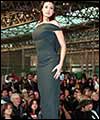 |
It
is really a matter of learning which verbs take 'to-infinitive' clauses
and which take an '-ing' clause, Claudia.
For example, 'hope', 'expect', 'learn' normally take 'to-infinitive':
- 'I learnt
to swim in Portugal last summer.'
- 'I expect
to get high marks in this exam because I put in a lot of work
for it.'
- 'I hope
to recover in time for my business trip to Thailand in August.'
After
some verbs, e.g. 'tell', 'advise', 'ask', 'to-infinitive' follows
the object:
-
'We asked them to show us the way.'
-
'He advised me to drive more slowly through the
village.'
-
'I told him to be quiet.'
|
